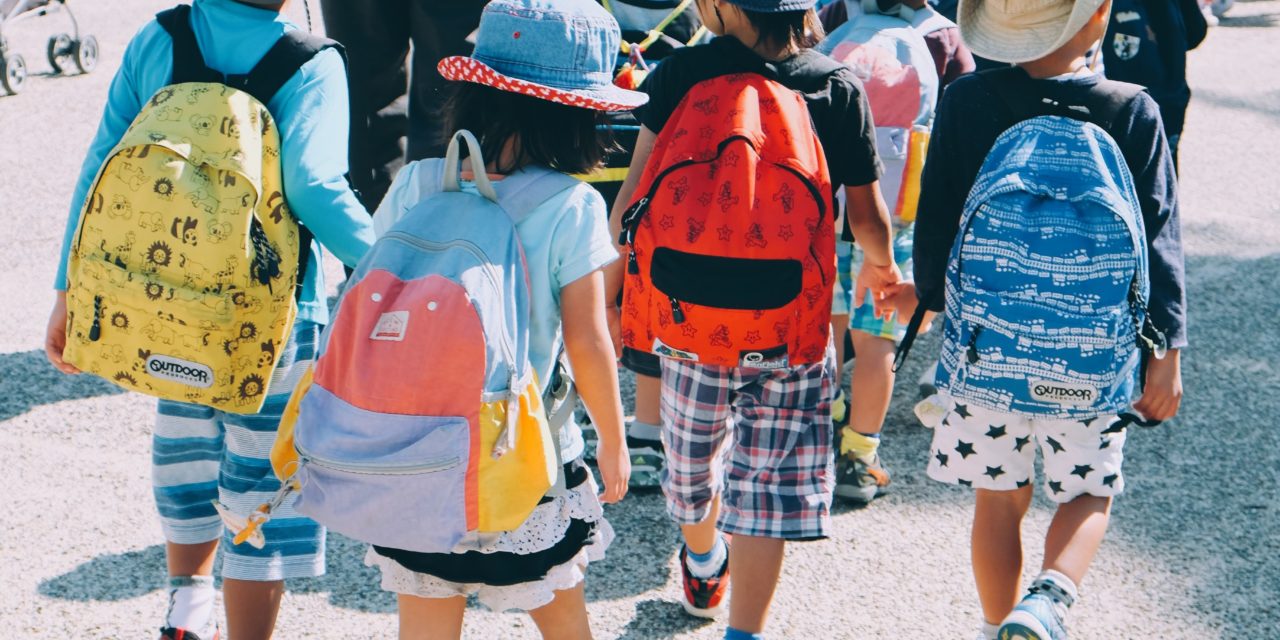“Upon the subject of education,” Abraham Lincoln firmly stated, “I can only say that I view it as the most important subject which we as a people may be engaged in.”
With the COVID-19 pandemic raging and Robert Redfield, the director of the Centers for Disease Control and Prevention anticipating the fall and the winter of 2020 and 2021 being one of the most difficult times experienced in American public health, decisions still have to be made that will have significant ramifications for future generations.
Like most pandemics, while making critical decisions, we do not have the benefit of hindsight. Our knowledge related to SARS-CoV-2 – the virus that causes COVID-19 keeps evolving with each passing day. However, what we have learned thus far is that certain demographic segments of our society, based on age or race or ethnicity have been asked to make greater sacrifices.
Elderly people residing in institutions or in the comfort of their homes have given up all in-person visits; millions of children have been kept home from school and transitioned abruptly to distance learning that no child, school district, or teacher was adequately prepared for; and long-standing systemic health and social inequities have put some members of racial and ethnic minority groups at increased risk of getting COVID-19 or experiencing severe illness, regardless of age.
Schools are a vital component of our community. Besides teaching STEM subjects, ELA, history and music, schools also cultivate life skills, social-emotional awareness and control, and community engagement, which serve people over the course of a lifetime. In addition, schools also function as tools and resources for public health intervention by addressing core needs such as nutrition, access to health and social support services, and engagement and support of families and the community as a whole.
Recommendations regarding K-12 education starting the fall of 2020 will only succeed if they are developmentally framed, taking into account children’s varying needs and cognitive abilities, and providing parents as much support as possible.
While most of us think our students are receiving a quality education, the majority of American students are falling behind their international counterparts. The first inning of the coronavirus-inspired spring of remote learning has yielded a low score as it has been difficult to engage students in this non-traditional format of learning.
Maybe our education policymakers need to utilize the opportunity afforded by the current pandemic to restructure the way our students learn. Decades of research, both about educational best practice and the way the human brain works, say that external motivators, such as grades or placement in the gifted or talented programs or advanced placement subjects are dangerous because they extinguish the desire to learn. Fueling external motivation, the traditional way becomes more salient in the COVID era because the “student engagement cliff” has a steeper slope with remote learning, compared to in-person instruction.
A key component of engagement is students’ excitement about what they learn. Inspiring students’ intrinsic motivation to learn is a more effective strategy to get and keep students interested. Students actually learn better when motivated this way because they put forth more effort, tackle more challenging tasks, and end up gaining a more profound understanding of the concepts they study.
Preliminary “COVID slide” estimates suggest students will return in fall 2020 with roughly 70% of the learning gains in reading relative to a typical school year. However, in mathematics, students are likely to show much smaller learning gains, returning with less than 50% of the learning gains and in some grades, nearly a full year behind what would be observed in normal conditions.
In my clinical experience, children with special education needs are at significant risk of academic regression when schools reimplement virtual learning this fall. Perhaps extra funds should be allocated to public school districts that expect to face the greatest gaps in staffing and infrastructure, based on formulas that measure the number of children receiving special education services and nutritional assistance.
Any kind of academic planning is doomed for disaster from the get-go if we ignore the social inequity that several amongst us face today. Many parents do not have the luxury of working from home. Some of them hold two to three jobs just to bring food to the table each day. Providing such families with a laptop or a tablet with high-speed internet connectivity, devoid of family support is analogous to applying a band-aid over a wound while letting it hemorrhage internally. The effects of poverty on physiologic and neurobiologic development are likely central to poverty-related gaps in academic achievement and the well-documented lifelong effects of poverty on physical and mental health. The stress of poverty has been compounded by the pandemic-related stress and frustrations related to not being able to create a world free of anti-Blackness, brought to the forefront by recent killings of Black men by the police. Education does not take place in a vacuum. To curb the anxiety associated with students worrying about their and their parent’s safety, school systems should hire additional counselors, social workers, and nurses to reach out to assist families on a regular basis.
In summary, besides focus on education, we need to be mindful of several other factors when we launch virtual learning this fall. We are accountable for every decision we make today. So, let’s be pragmatic and put forth our best effort while making decisions for our posterity.







Recent Comments